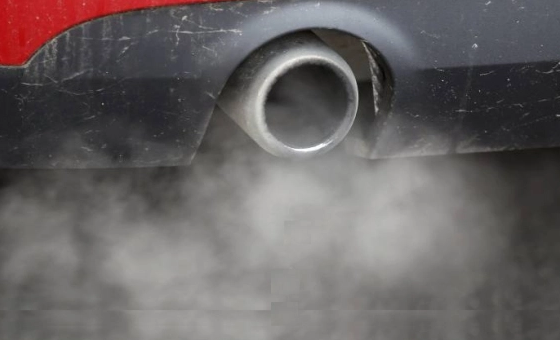The people have spoken. Will the Republican Party listen?
By a roughly 3,000-to-1 ratio as the public comment period ended on a key Biden administration climate initiative, Americans agree that states should be required to better track their transportation-sector greenhouse gas emissions to lead to reducing them, according to the Natural Resources Defense Council.
The trick is how you get there. The Biden administration wants to establish a national framework for tracking state-by-state progress on greenhouse gas emissions by adding a new "performance management measure" to the existing national performance measures so states can better track their success. The White House said their rule would still allow state DOTs to "set their own declining targets for on-road greenhouse gas emissions."
And a uniform way to track state performance is key, says the Georgetown Climate Center.
“The Infrastructure Investment and Jobs Act could be an important part of the U.S. response to climate change," the experts said in a brief. "Or it could lead to more greenhouse gas pollution than the trajectory we are currently on. Where the actual outcome falls within that range will depend on the decisions made by state, federal, regional, and local governments about how to spend the money made available by IIJA.”
Twenty-four states and Washington, D.C. already follow the proposed federal guidelines right now, evidence that it's not so hard.
“Our approach gives states the flexibility they need to set their own emission reduction targets, while providing them with resources from [the] Bipartisan Infrastructure Law to meet those targets and protect their communities,” Transportation Secretary Pete Buttigieg said earlier this year when the rules were unveiled. The public comment period ended on them last week.
GOP-controlled states oppose the Biden rules on the grounds that tracking greenhouse gas emissions on highways "goes against congressional intent and should be rescinded," Bloomberg reported.
“This action follows a common theme by both [U.S.] DOT and the administration, which is implementing partisan policy priorities they wish had been included,” Sen. Shelley Moore Capito (R-W.Va.) said at the time. (Democrats have defended the rule change on the grounds that Congress long ago set a goal of making roads and highways more sustainable and even directed the U.S. DOT to create a system to measure states’ efforts.)
Capito has been one of the top Republican blasting the Biden administration for so-called "woke" policies. In January, 16 GOP governors wrote to Biden demanding that the administration “not burden states or private sector partners with needless and unnecessary red tape,” in the distribution of funds for projects under the Infrastructure Investment and Jobs Act.
But it wasn’t really red tape that the governors took aim at — it was tape that was green or rainbow-hued. The letter specifically cites objections to the federal effort to only fund projects that seek to mitigate global warming or rectify racist land-use policies. (Ten states and the District of Columbia sent testimony in support of the Biden plan.)
As such, advocates renewed their call to support the Biden administration greenhouse gas effort.
“The wave of support for this rule is a clear sign,” said Beth Osborne, director of Transportation and Thriving Communities at Smart Growth America, referring to the 3000-to-1 public comment straw poll. "States and local communities want to make a positive impact on transportation emissions, and taxpayers want to see the results of their investments."
Osborne and others said that the Biden administration should act quickly to finalize the measure because it is likely that the GOP will win control of one or both houses of Congress after the November elections. Mid-term elections almost always go against the party of the sitting president.
The public comment period ended on Oct. 13 with more than 100,000 comments, with only a few hundred in opposition, said Patrick Wojahn of the Rails to Trails Conservancy, which was tracking the comments.






